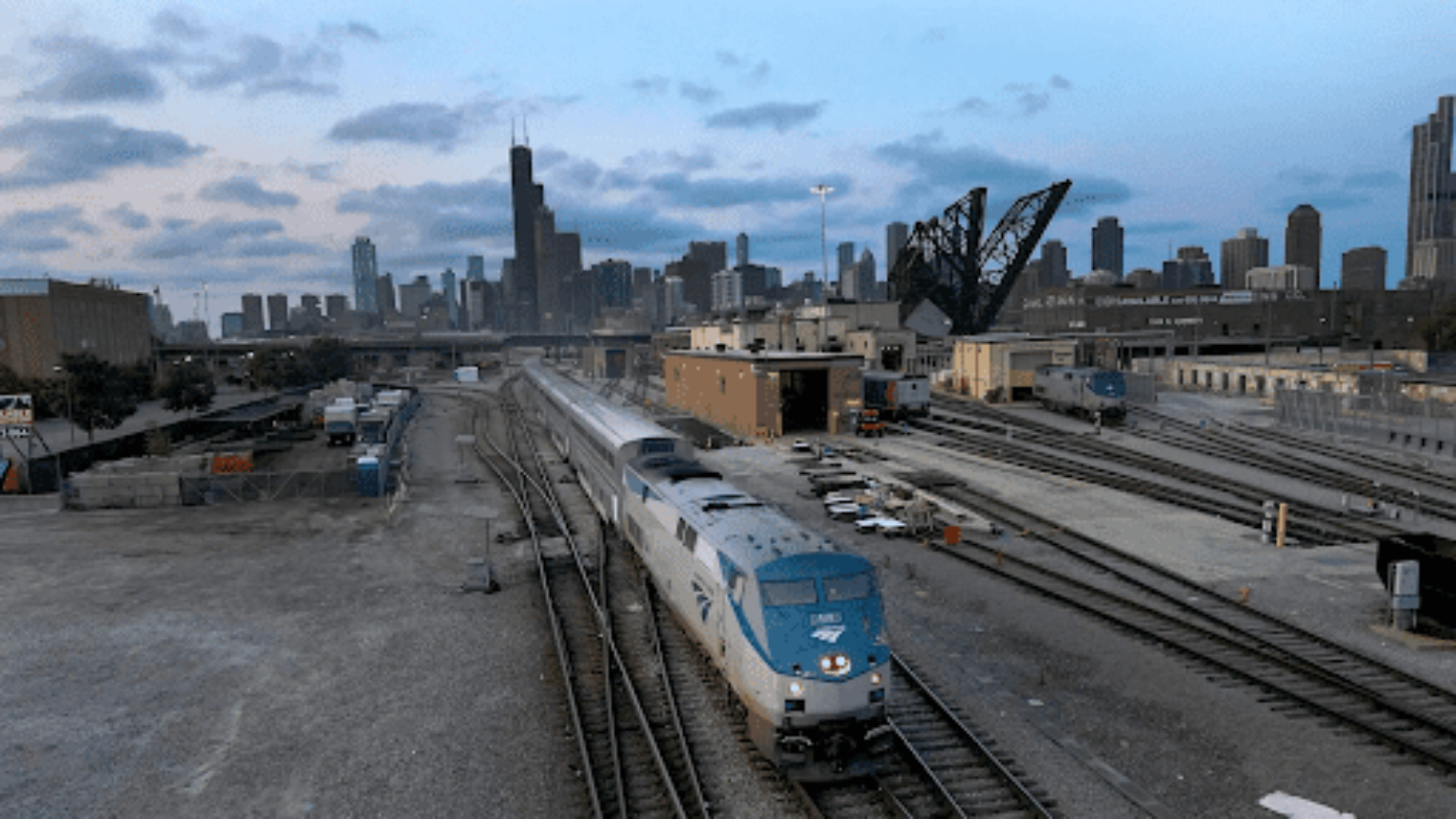Freight rail companies and unions have reached a deal to avoid a catastrophic strike that would cripple the nation’s railways. After freight rail unions threatened to strike, passenger rail companies panicked, and spontaneous delays and cancellations shocked passengers across the country. The Biden administration announced Thursday morning that routine operations could resume nationwide since a deal has been reached to prevent the strike.
NY TIMES: Railroad Unions and Companies Reach a Tentative Deal to Avoid a Strike
Jim Tankersley; September 15, 2022
WASHINGTON — Freight rail companies and unions representing tens of thousands of workers reached a tentative agreement to avoid what would have been an economically damaging strike, a relief for American businesses and consumers and a win for President Biden, whose administration helped broker the deal.
The breakthrough was announced by Mr. Biden early Thursday morning after all-night talks hosted by his labor secretary, Martin J. Walsh.
In remarks at the White House on Thursday, Mr. Biden hailed the agreement as positive for both workers and companies alike.
“This agreement is a big win for America,” Mr. Biden said. “And this is a great deal for both sides, in my view.”
The agreement now heads to union members for a ratification vote, which is a standard procedure in labor talks. While the vote is tallied, workers have agreed not to strike.
The deal was praised by both freight companies and union leadership, reflecting a key compromise on issues of improved working conditions for rail workers, which had been the biggest sticking point in the talks. Unions won the right to attend medical appointments without penalty, among other measures meant to ease the burdens of rigorous scheduling. Still, in a win for the companies, workers will have to take unpaid leave to attend those appointments.
Averting a strike was a victory for Mr. Biden, who was facing down the prospect of far-flung shipping disruptions and a new wave of potential price spikes in the run-up to midterm elections in November.
Mr. Biden and his economic team had increasingly inserted themselves in the talks over the past week, hoping to avoid a work stoppage that would have snarled the distribution of food, chemicals for water treatment plants and other critical goods across the country. Such a stoppage also risked creating shortages on store shelves that could have sent consumer prices soaring, further adding to an inflation rate that reached a four-decade high this summer.
The talks brokered by Mr. Walsh began Wednesday morning and lasted 20 hours. Mr. Biden called in around 9 p.m. Wednesday, a person familiar with the talks said. Mr. Walsh called White House officials around 2 a.m. to say a deal appeared to be reached.
The announcement had a swift effect for rail passengers. A day after canceling all long-distance passenger trains to avoid stranding people in the event of a freight rail strike, Amtrak said it was “working to quickly restore canceled trains and reaching out to impacted customers to accommodate on first available departures.” Many of Amtrak’s trains run on tracks operated and maintained by freight carriers.
Talks had stalled over a push for companies to improve working conditions, including allowing workers to take unpaid leave to visit physicians. The agreement grants that ability, giving workers one additional paid day off and an ability to attend medical appointments without penalty, labor unions said.
“Most importantly, for the first time ever, the agreement provides our members with the ability to take time away from work to attend routine and preventative medical, as well as exemptions from attendance policies for hospitalizations and surgical procedures,” the presidents of the Brotherhood of Locomotive Engineers and Trainmen and the Transportation Division of the International Association of Sheet Metal, Air, Rail and Transportation Workers said in a news release.
The presidents, Jeremy Ferguson of the transportation division and Dennis Pierce of the engineers and trainmen, also said the deal will freeze workers’ monthly health care contributions when it expires, ensuring those costs will not increase during the next round of contract negotiations.
Mr. Biden said the agreement would help workers access medical care and help companies attract and retain workers. “This agreement is validation — validation of what I’ve always believed,” Mr. Biden said. “Unions and management can work together — can work together for the benefit of everyone.”
The Association of American Railroads, an industry group, thanked the unions and Biden administration officials — including Mr. Walsh, Transportation Secretary Pete Buttigieg and Agriculture Secretary Tom Vilsack — for helping to bring the deal together.
“Thanks to the dedication of all members involved in the collective bargaining process,” the association said in a news release, “these new contracts provide rail employees a 24 percent wage increase during the five-year period from 2020 through 2024, including an immediate payout on average of $11,000 upon ratification.”
Union Pacific, a rail carrier, praised the deal. “We look forward to the unions ratifying these agreements and working with employees as we focus on restoring supply chain fluidity,” the company said in a statement.
Mr. Walsh wrote on Twitter that the agreement “balances the needs of workers, businesses, and our nation’s economy.”
“Our rail system is integral to our supply chain,” he said in a follow-up tweet, “and a disruption would have had catastrophic impacts on industries, travelers and families across the country.”
Unions and the freight rail industry were negotiating ahead of a Friday deadline, when a federally imposed “cooling-off period” was set to end and workers would have been free to strike if no deal had been reached. That possibility had already shaken both freight and passenger rail companies.
Nearly a third of U.S. freight moves by rail, second only to trucking. The Association of American Railroads estimated that a nationwide rail service interruption would have idled more than 7,000 trains daily and cost the economy more than $2 billion a day.
Photo: Charles Rex Arbogast/AP
